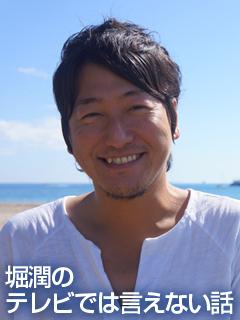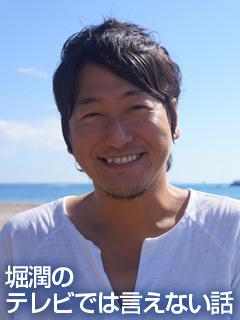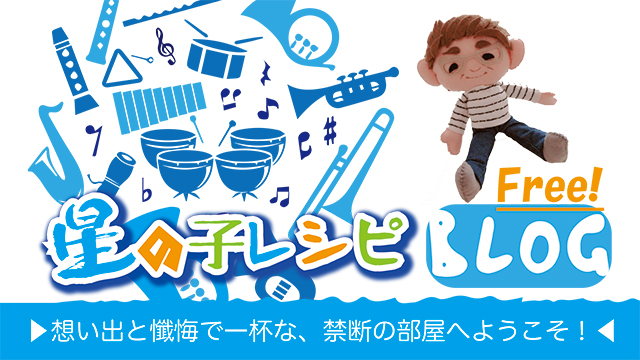━━━━━━━━━━━━━━━━━━━━━━━━━━━━━━━
* 堀潤のテレビでは言えない話 vol.24 *
~「TEDxKyotoで伝えたかった個人発信の未来」の巻~
発行:8bitNews 2013.10.7 (毎週1回発行)
http://www.facebook.com/8bitNews.HORIJUN
http://twitter.com/8bit_HORIJUN
━━━━━━━━━━━━━━━━━━━━━━━━━━━━━━━
皆さん!
更新がすっかり遅くなってしまい申し訳ありませんでした。
先日TEDxKyotoに登壇してきたのですが、なんだかんだ言って相当プレッシャーだった様で、毎日仕事をしながら、プレゼンの中身のことばかり考えていました10分あまりで、自分の思いを世界に伝えようというのは、なかなか大変な作業ですね。簡潔に一方で凝縮されたメッセージ。
今回は映像も制作し、同時に発表したのでなかなかの作業量でした。

http://www.tedxkyoto.com
TEDxKyoto photo taken by Ilko Allexandroff creative commons Attribution-NonCommercial-NoDerivs 2.0 Generic (CC BY-NC-ND 2.0)
ブロマガが遅くなってしまって本当に申し訳ありません。
今回は、皆さんの英語の勉強にも役立てて頂ける様に、TEDxKyotoでのスピーチを日本語、英語双方で掲載してみました。実際のスピーチは日本語で行いましたが、英訳も作成しなくてはならず、米国の友人の協力で何とか用意することができました。
皆さんとシェアしますので、ぜひ、ご活用下さい。
ではでは、今号のコンテンツはこちらです!↓
┌───────────────────────────────┐
├○ 堀潤のテレビでは言えない話 vol.24:2013.10.7
├○
├○ 01.【堀潤のソーシャル日記から】
├○ 第12回「僕らのニュースルーム革命」
├○ ~TEDxKyotoでのプレゼンテーション~
├○
├○ 02.【ルポルタージュ】
├○ 次世代メディアへの創造力+α
├○ 第14回「テレビとネットメディアの間」
├○ 堀潤×古市憲寿(社会学者)×杉本誠司(ニワンゴ社長)×福原伸治(フジテレビ)
├○
├○ 03.【ルポルタージュ】
├○ マイコの下克上✧研究者の道 『被害者学編』
├○ 苦行な院生生活を徒然なるままに
├○ 第6回「やり返さない強さ」
├○
├○ 04.【ルポルタージュ】
├○ フクシマ日常論 ラジオ福島・大和田メール
├○ 第7回「福島と沖縄と。そして花壇と除染」
├○
├○
├○ 05.【告知】今週のスケジュール& お知らせ
├○
└───────────────────────────────┘
▼前回「Vol.23」へのリンクはこちらです。
[リンク] http://ch.nicovideo.jp/horijun/blomaga/ar344961
未読の方は併せてお楽しみ下さい。
┏┓----------------------------------------------------------
┗■ 01.【活動日記】堀潤のソーシャル日記
---------------------------------------------------------------
このコーナーでは1週間の堀のつぶやきから3本を選んで深堀り。
毎日新聞の連載と連動しています。
NPO法人代表として、そしてジャーナリストとしての堀の1週間からのルポルタージュ。
---------------------------------------------------------------
TEDxKyoto「僕らのニュースルーム革命」
~プレゼンテーションの現場から~
先月9月29日、京都外国語大学森田記念講堂で開かれた「TEDxKyoto」にスピーカーとして登壇した。
TED(テッド)とは、米国カリフォルニア発祥の国際的なプレゼンテーションの大会で、Technology(技術)、Entertainment(エンターテインメント)、Design(デザイン)分野の第一線で活躍する専門家たちが登場。優れたアイデアを大勢の観客の前でプレゼンテーションし、参加者と共有する催しだ。
スピーチの様子はインターネットで無料で中継され世界中の人々に届く。貧富の差を超えて最先端の叡智を誰もが手に入れる事ができる。
これまでに、マイクロソフト創業者のビル・ゲイツ氏や、アップル創業者の故・スティーブ・ジョブズ氏、元米国大統領のビル・クリントン氏などが登壇。その他、科学者、哲学者、社会起業家、芸術家などが自ら実践する「世界を変えるアイデア」を出し合あってきた。
今回、筆者は「僕らのニュースルーム革命」と題して、個人発信とマスメディアとの新しい関係づくりについてプレゼンテーションした。
それぞれの生活の中で直面する課題を自ら発信する事で解決に向けたアイデアを募り、立ち往生して前進できない状況を改善していこうという呼びかけだ。マスメディアの取材がなくても、スマートフォンからの発信があれば僕らがサポートして、より大きなインフラに乗る発信へと後押ししていくことを皆さんに伝えた。
今回は、TEDxKyotoでスピーチした内容を、日本語と英語で掲載。
ぜひ何かの参考になればと思う。
英語の学習などにもご活用下さい。
==========================================================
TEDxKyoto 2013
TITLE:
僕らのニュースルーム革命
個人の発信がジャーナリズムを変える
Jun Hori
Our Newsroom Revolution
Public participation will change journalism
きょうは、僕らのニュースルーム革命について、お話しします。
I am here today to talk about our newsroom revolution.
僕は、今年の春まで、アジア最大といわれる日本の放送局で、ニュースリポーターやニュースキャスターをしていましたが、退職しました。
Up until spring of this year, I worked as a newscaster for what is regarded as the largest broadcast corporation in Asia. I quit.
テレビという限られた時間の中で毎日のニュースを伝えるのには限界を感じていたからです。大きな災害や事件・事故は別ですが、普段は一つのニュースにかけられる時間は概ね2分から3分。短いものだと、1分10秒くらいしかありません。
I felt that Television, as a medium, has limitations on how it transmits the daily news to its audience. Putting large catastrophe’s and disasters aside, any typical news topic gets 2, maybe 3 minutes of air time. Sometimes, it is as short as a minute and ten seconds.
1分や2分で伝えられる程、世の中はシンプルではありません。事件や事故の情報、そして、それに関わった当事者の人々の声や受け止め方はとても複雑です。テレビのニュースで伝える際には、取材者が一部の側面を切り取って放送していく事になりますが、ニュースを見た人によっては、それが全てだと信じてしまう場合も多々あります。
What can possibly be communicated in a minute or two? Is our world that simple? For any accident or incident, there are multiple back stories that affect many people. Television news reports inevitably choose to show one perspective, and the audience is made to believe that it represents the entirety of the event.
例えばこんなことがありました。
Take this as an example.
かつて、沖縄にあるアメリカ軍普天間基地の移設問題を取材した際、基地に反対する地元の人たちの声に交じって、何人かの高校生達が「基地がなくなったら、就職先がなくなってしまうから困る。父親も母親も基地で働いているのに仕事を失う事になってしまう」。「アメリカ兵が怖いという声もあるけれど、自分は毎年基地で開かれる祭りにも参加していて仲良くしている」。
A while back I was reporting on the relocation plans for the US Marine’s Futenma Air Base. Amidst the concerns on the presence of the US Military in Okinawa, I also heard the voices of some high school students who said, “If the military base is removed, we won’t have a place to work. My parents both work at the base, and they would be losing their jobs. There are some who are scared of the Americans, but I attend their annual festival, and have made many friends.”
そのころ、沖縄県では米軍基地に対する大規模な反対集会が開かれようとしていました。僕が取材をしたその日のニュースのテーマは「沖縄の怒りと不安」。
At the time, there was a strong, organized opposition against the US Military bases in Okinawa. The title of my news report that day was “Anger and Concern for Okinawa”.
結局、僕が現場で聞いた高校生達の声は、放送されませんでした。現場から東京の編集室の上司に「基地がなくなったら困るという高校生の言葉も、今後の雇用問題を考える上では大切ではないのですか?」と電話をかけたものの、結局「気持ちはわかるけど、全体のトーンに当てはまらないし、そこまで論じる程のVTRの時間も確保できない」と返され、 お蔵入りになってしまいました。
In the end, the voices of the young high school students never got on the air. I asked my supervisor in Tokyo, “aren’t the concerns of the high school students a valuable part of thinking about the future of the military base?” His response: “I understand where you are coming from, but they just don’t match the overall tone of the news release. Besides, we don’t have enough time to squeeze in their story.
現実に横たわる、複雑な状況を、短い時間で伝えるのはなかなか難しいと実感した出来事です。
It was at that moment that I realized just how difficult it is to report on a truly complicated situation in a very short amount of air time.
そして。
皆さんもよくご存知の、東京電力福島第一原発の事故を巡る報道。
And then… As we all know, the news reports on TEPCO’s Fukushima Dai-ichi Nuclear Plant.
パニックを起こしてはいけない。
社会的な不安を煽ってはいけない。
日本の国益を損なってはいけない。
Do not create panic.
Do not fuel public anxiety.
Do not damage the national interest of Japan.
そうした大号令のもと、原発に関するニュースは慎重に、慎重に扱われる様になり、却って「どうしてテレビは本当の様子を伝えてくれないのか?」と疑心暗鬼に陥ってしまう人々が次第に増えていったように思います。
Under these guidelines, we were told to proceed cautiously with any news reports regarding the nuclear crisis. Eventually, an increasingly suspicious public began to question the news, asking “why doesn’t the television report the truth?”.
実際、最近も話題になった、原発や周辺の施設から海へ流れ出る汚染水の問題について。
事故からまもない、2011年春の段階から「海へ流出している汚染水への対策を早急に講じなければならない」と主張する専門家もいましたが、日本国内で大々的にこの問題が報じられる様になったのは、一部のメディアをのぞいて、この夏に東京電力が公に流出を認めてからのことです。
In recent days, the news about contaminated water leaking from the nuclear facilities has made headlines. Shortly after the nuclear crisis, some experts were insisting on the need to address the reality of contaminated water flowing into the ocean. However, aside from a select few media outlets, this news did not make the mainstream media until this summer, when TEPCO admitted that the leaks were real.
事故から2年半以上が経ってしまいました。
It has now been 2 and a half years since the disasters.
テレビ局の中で働いていると、原発の問題に触れるのは、なぜかタブーに挑戦しているような気にさえなります。
Working in television, I cannot help but feel that the mere mention of the Nuclear Crisis has in itself, become a taboo subject.
気がつけば2013年、パリに本部を置く「国境なき記者団(Reporters Without Borders)」が発表した、各国の報道の自由度ランキングで、日本は53位。
前年の31位から大きく順位を下げてしまいました。
Looking at the 2013 Press Freedom Index published by Reporters Without Borders in Paris, Japan ranks in at a dismal 53rd amongst all other nations, compared to 31st the previous year.
伝えたくても、伝えきれないことがある。
僕のように、メディアの内側の人間がジレンマを抱えながら働いているケースは、決してすくなくありません。自分たちの力で、マスメディアの情報発信を変えていかなくてはいけない、そう思って「ニュースルームの革命」を切望する声が、今、内側からも高まってきています。
Even if the desire is there, it is not possible to tell the whole story.
My situation is by no means unique. There are others in the media who struggle with this reality. Therefore, we must change the way information is disseminated. This is the genesis of the idea behind the “Newsroom Revolution”, an idea that is increasingly being echoed by those on the inside.
そうした中、
去年6月、僕は仲間達と共に、インターネットを使って動画を投稿するニュースサイトを立ち上げました。それが「8bitNews」です。
会員登録してもらえれば、誰でもスマートフォンやコンパクトデジカメなどを使って自分で撮影したニュースの現場の動画を、サイトにアップロードできる仕組みです。
地域が直面している課題や、原発の再稼働の是非についての問題、TPPのような経済問題など様々なテーマがこれまで投稿されてきました。
And so it was that back in June of 2012, with the collaboration of other colleagues, I launched 8bitNews, a website that allows you to upload your own videos. By creating a free account, anybody can submit news stories, whether they are captured by a smart phone or a compact video camera. We have seen many, many stories published on topics ranging from the challenges the devastated regions are facing, the pros and cons of restarting nuclear energy to the economic issues that revolve around TPP.
自分が直面している問題を、自分で撮影して自分の力で社会に発信しよう投稿する人たちが、次第に増えていきました。
People are now empowered to publish their stories from their perspectives by filming and publishing their own stories.
サービス開始から、1年で投稿された動画の数は1000本を超え、再生回数も、全体で25万回以上となりました。ヨーロッパやアメリカを中心に、世界86カ国以上からアクセスが集まり、アフリカやロシアなどからも動画を見ている人がいたことに、逆に驚かされました。それだけ、日本から海外向けに発信される動画のコンテンツが少ないのだろうとも思う様になりました。
Since our launch, more than a thousand videos have been uploaded in the first year of service, totalling over 250,000 views. Viewers come from all over the world, predominantly from the United States and Europe, but also from 86 other countries, including Russia and countries in Africa. Perhaps this is an indication of how little material is being broadcast from Japan to the world via traditional news outlets.
こちらの動画をご覧下さい。
これは、長野県の自動車関連の会社で働いていた、40代の男性が、自ら原発作業員となって東電福島第一原発の収束作業に加わった時に撮影された映像です。
I would like to show you a clip. This 40 year old man used to work in an automobile company in Nagano Prefecture. He then decided to join TEPCO as a nuclear worker to partake in the ongoing reconstruction efforts.
男性は、もともと会社勤めの営業マンでした。
テレビや新聞を見ていても、あまり原発内部の様子がよくわからないと感じ、自ら作業員に応募して実態を直接知るために、原発で働くようになりました。
This man was previously a salesman. But watching television and reading newspapers revealed little of what was going on inside the nuclear plant. This motivated him to apply for a position in TEPCO to find out what was really going on.
去年の春、男性が原発に向かう直前、僕のもとを訪ね「自分が現場で見た事を多くの人にむけて発信したいので方法を教えて欲しい」と相談にこられました。
In the spring of last year, this man approached me right before he was heading into the nuclear power plant. He told me that “I want to let as many people know about what I will see. Can you help me?”
撮影方法や、記録の残し方など、私たちジャーナリストが普段の仕事の中で培ってきた技術や経験を男性に伝えました。
I instructed him on the different techniques that we, as journalists, use to record our material, and shared some of my own personal experiences.
男性の発信を8bitNewsでサポートすることを約束し、その後、彼は福島に向かいました。数ヶ月後、男性が撮影した映像におさめられていたのは、東京電力の下に、何重にも連なる下請け構造。給料のピンハネや、知識や経験もない未成年の労働者があたかも経験のある作業員のように仕立てられて、現場に送り込まれている実態でした。
I also promised that his coverage would be supported by 8bitNews. Shortly afterwards, he headed off to Fukushima. In a few months, his recordings exposed the multiple layers of sub-contracting structures that were put in place by TEPCO. Furthermore, minors with little or no knowledge were sent into the crisis with fake resume’s that made them appear to be experienced workers.
私たちのサイトにアップされたそれらの映像は、やがて新聞や雑誌、そしてテレビにとりあげられるようになり、東京電力が下請け企業での労働環境の実態把握に務めるとアンケート調査を行ったり、労働基準監督署が一部の企業に注意したりと、具体的なアクションに繋がりました。
The material that we put up on our site eventually got coverage in newspapers and magazines, and also on television. This led to direct action led by the Labor Standards Inspections Office in their questioning of TEPCO’s policies on their sub-contracting practices.
一般の皆さんと、僕たちメディアで働く人間が共に協力し、高め合いながら、ニュースを伝えていく試みです。
高画質の動画が撮影できるスマートフォンを持つ人が増え、しかもインターネットと繋がっている。ソーシャルネットワークが拡大する今、誰でも発信者になれる時代になりました。
The general public… along with those of us who work in the media industry… working together, collaborating to share a news story. This is what this is all about. As more and more of us have smart phones capable of capturing imagery at high resolutions, and as social media sites become part of our daily life, now, more than in any time in history, we have been empowered with the ability to share our story.
私たちが、8bitNewsの活動を通じて目指すのは、二つの概念です。
オープンジャーナリズムの実践と、パブリックアクセスの実現。
There are two goals that we at 8bitNews are aiming to achieve. Open Journalism and Public Access.
オープンジャーナリズムとは、インターネット上で情報を公開しながら、ジャーナリスト以外の人たちも一緒になって、情報を集めたり、検証したりして事実を探求していく試みです。
Open journalism refers to the idea that anybody, regardless of whether they are journalists or not, can publish news material on the Internet and get together with others around a story, gathering materials to investigate an incident in the pursuit of the truth.
ここで言う一般というのは、何も知らない市民を指すわけではありません。
By “anybody”, I do not mean a non-informed citizen.
例えば、科学者や医師、弁護士、臨床心理士、または事件や事故の当事者など、ジャーナリストよりもさらに専門知識をもつ人たち。または核心をつく、一時情報を持つ人々も沢山いるわけです。
For example, scientists, doctors, lawyers, psychologists, or actual witnesses to an accident or incident, all may possess a deeper knowledge and understanding of a situation, more so than the journalists themselves.
これまで一つ一つのニュースは、精査され、編集された完成品になってはじめて表に出てくる仕組みでした。ところが、その作業が外からは見えない分、どのようにして情報が選ばれ、または捨てられていったのかよくわからず、それがかえって疑心暗鬼を生み出す場合もありました。
Up to this point, each news report gets published only after it is packaged as a carefully edited and choreographed product. What is not visible from the outside world is how certain materials are chosen, and others omitted, at times leading to suspicion towards the integrity of the finished product.
オープンジャーナリズムはそうした、メディアへの不信感を晴らし、参加者を増やす事によって、より多角的に、スピーディーにニュースを検証しようという試みです。
Open Journalism attempts to address this growing distrust in traditional media by allowing more people to participate, from multiple perspectives, in an effort to deliver a speedy reporting of the news.
オープンジャーナリズムを積極的に取り入れる、イギリスの老舗新聞社「ガーディアン」の編集長は、こう述べています。
「私たちジャーナリストは、世界で唯一の専門家ではない」。
The UK based newspaper “The Guardian” is known for its tradition of Open Journalism. Their Editorial Chief has said that “We as journalists are the only non-experts in the world”.
つまり、これだけ複雑で多様化した社会で、1人のジャーナリストだけが物事を検証したり情報を集めるのは、合理的ではないというのです。
In other words, it is not reasonable to expect a single journalist to single-handedly gather materials and investigate a situation in this complex and diverse society.
日本の場合、例えば、未だ収束の見通しがたっていない、原発事故への対応には、オープンジャーナリズムの観点が不可欠です。
情報をあまねく公開し共有。
The situation in Japan regarding the nuclear crisis is a perfect case for Open Journalism, given how it continues to be a polarizing and unresolved conflict. Information needs to be shared as widely as possible.
世界中から知識や技術、アイデアを集め、一刻も早い対応策が現場に投入されるよう、私たちメディア関係者も全力を尽くさなくてはなりません。
Those of us in the media need to work harder to incorporate the ideas, the knowledge, the technologies from around the world to come up with immediate strategic measures to be used on site.
そして、もう一つ。
それが、パブリックアクセス。
この言葉を皆さんは、聞いた事がありますか?
パブリックアクセスとは、国の資源は、国民であれば、誰でも使う事が出来る権利で、電波も、国民がいつでも使える様にするべきだと法律で保障するものです。
One more thing. Public Access. Have you heard of this term?
Public Access means… that as a citizen of a country, you have full rights towards its resources, including radio frequencies, where citizens are protected by law to be allowed to use freely.
実は、このパブリックアクセス、日本以外の多くの先進国では、法律によって国民に保障されています。アメリカ、ヨーロッパ、そして韓国や台湾では、各国の公共放送(PBS)などが受け皿になって、一般の人々から持ち込まれた映像や番組を、電波を使って、放送しています。
Did you know that in most developed countries in the world, Public Access is provided to the public by law? Not so in Japan. But in the United States, Europe, and even South Korea and Taiwan, public channels allow the general public to produce media and programming on national television using public access airwaves.
アメリカでは、1970年代の公民権運動の際に、そして韓国では、1980年代の民主政権誕生を基に、それぞれ法律が整備され、電波が市民に開放されました。
イギリスでは、BBCが市民がつくる専門の番組をあらたに設けたり、BBCのカメラマンやディレクターが、市民と一緒になって取材を行ったりと、発信技術の向上も共に行ってきました。
In the US, the Civil Rights Movement of 1970, and in South Korea, the birth of the democratic regime in 1980, each enacted laws that distributed air rights to the public. In the UK, BBC produces programs that enable publicly generated content, allowing BBC cameramen and directors to work together with citizens, constantly improving upon their programming material.
日本では、このパブリックアクセスの権利は法律でまだ保障されていません。
自分たちが電波を使って、広く発信したいと願っても、テレビ番組でそれを流す事は出来ず、インターネット上で配信するしか方法がありません。
In Japan, we are not guaranteed by law any rights to public access. Even if we build our own news network, we are not able to publish it on Television, leaving us with the Internet as our only means of disseminating our stories.
僕は、日本が民主主義の国としてさらに成長する必要があるのであれば、パブリックアクセスの実現は、とても大切だと思っています。
社会に対して、多様な意見や、様々な事実があることを、一人一人の国民が大勢に対してしっかりと発信できる環境があるのと、ないのとでは大違いです。
If Japan is to grow as a Democratic country, I strongly believe that making Public Access a reality is a necessary step.
Individual citizens have diverse opinions and multiple perspectives towards society. Each individual should have the ability to express their views widely. Whether or not we have the means to do so is what will make a huge difference.
もし、大手のメディアがどのチャンネルをひねっても同じようなことしか報道していなかったとしても、パブリックアクセスを使って全く異なる視点からニュースが報じられていれば、私たちはそれをみて比較することもできます。
Imagine that, for a given event, every mainstream media channel happened to show the same news coverage. If we had Public Access, we would have the ability to experience the news from a different perspective, allowing us to compare the coverages.
僕は今、色々なテレビ局の仲間達に、「日本にもパブリックアクセスを実現させよう」と呼びかけてまわっています。
インターネットも発達して、一般の皆さんが、ハイビジョンクラスの高画質の動画を自分の力で撮影することが簡単にできてしまう時代です。
I am now calling out to my many friends in the TV business. Let’s make Public Access in Japan a reality. The general public is now able to record their own high definition coverage of an event and post it on the Internet.
私たち8bitNewsは、そうした、一般の皆さんの発信力を強化するため、今、プロのジャーナリストを講師に招いてワークショップを開いたり、取材をするためにお金が必要な人に対して、インターネットを使って資金を集める「ジャーナリスト向けのクラウドファンディング」の仕組みを準備したりしています。8bitNewsに投稿された動画は、そのまま、より大きなメディアでも使ってもらえるよう、テレビ局や新聞社との協力関係を強めています。
We at 8bitNews want to support such individuals, by having professional journalists conduct workshops. For those seeking monetary help, we support them by requesting “journalist crowd funding” donations using the Internet. We continue to strengthen our ties with Television and Newspaper sources in order to provide a larger venue for the stories published on 8bitNews.
オープンジャーナリズムの実践と、パブリックアクセスの実現。
開かれたメディアを日本につくるためには、必要不可欠な考え方です。
To practice Open Journalism, and to realize Public Access. This is an essential way of thinking in order to make a Japanese media that is open.
さて、最後に大切なことをもう一つ。
数年前からニュースの街頭インタビューをする時に、皆さんになげかける質問の仕方を変えました。
今までは、「私たちの国が抱える問題を解決するためには、何が必要だと思いますか?」と聞いていました。みなさん、あっという間に、「政治を変えなくてはいけない」「利益ばかり追求して、弱者を切り捨てる国であってはいけない」「教育を変えなくてはいけない」「大企業ばかりが儲かる仕組みではいけない」などと、皆さん様々な意見をあげてくれます。
To conclude, I have one last important topic.
Starting a few years ago, I have changed my approach towards the way I conduct public interviews. Previously, I would ask “What is needed in order for us to solve the problems our country faces?” The responses were immediate: “government must change”, “we can’t continue to sacrifice the weak in order to gain profit”, “we must change the educational system”, “we can’t allow the big companies to be the only ones to be profitable”.
しかし、僕は質問の仕方を変えました。
「変えなくてはいけないこと、沢山ありますよね。では、それを変えるために、あなた自身は、何をしますか?」
「えっ?俺がですか?」「私がですか?」
「はい。あなたは、何をしますか?」
But now, I ask “There is so much that needs to be changed. What would you do to make some of these changes happen?”
“What? Me?”
“Yes, you. What would you do?”
社会に横たわる、様々な問題を解決するために、自分はどう行動するのか。
今、この国の民主主義を成長させるためにはもっとも必要な事だと思っています。
What would I do to help solve the many problems we face in society.
This is how we need to think in order to advance democracy in this country.
この国には、働いても働いても、年収が200万円以下というみなさんが、労働人口4分の1以上、1100万人以上いると言われています。
毎日の生活費を稼ぐのが精一杯で、社会を良くしようなんて思える余力がなかなかないのが現実だといいます。
僕自身、会社をやめて、満員電車に揺られながら、翌週の仕事があるかどうかを考えた時の焦り、何も考えられなくなり額にじわっと汗がでる感覚を味わう事があるのでイメージができます。
In our country, no matter how hard we work, more than a fourth of the working population makes less than 2 million yen a year. That is more than 11 million people.
That means that many of us are barely making ends meet, giving us little time to reflect on how we can make a difference in society.
After quitting my job, I found myself in crowded rush hour trains, wondering whether or not I will have work the following week. I feel and understand the stress of uncertainty.
ただ、そんな日常の中でも、皆に困難な状況を知ってもらおうと、ポケットからスマートフォンを取り出し動画に自分が置かれている状況や、まわりが直面している課題を映し出して投稿すれば、誰かが助けにきてくれるかもしれません。誰かがアイデアを出してくれるかもしれません。
Even under these circumstances, I am empowered by the smartphone in my pocket, having the ability to report on my current situation, to report on the various topics that surround me, hoping that someone may heed my call for help. Someone out there might just might be able to contribute a good idea.
連鎖をうむのです。
誰かがやってくれる。
それは、国や企業がやるべきことだ。
We can start a chain reaction.
Someone will come.
This is what our country and big companies need to be doing.
そんなおまかせ民主主義ではなく、私たち一人一人が情報をシェアして、知恵を出し合い、具体的なアイディアを実行していく。
Rather than waiting for democracy to happen, we need to actively share information, express our knowledge, and apply our ideas.
僕は、そんな世の中になれば、格差や貧困、待機児童、不条理な原発事故など、課題に直面して立ち往生してしまい困っている人たちが、少しでも前進できるようになるのではないかと期待をしています。
I have hope that in such a society, issues on poverty, inequality, shortage of childcare, unresolved nuclear crisis can all be addressed differently, and perhaps advance their causes little by little.
そのために、メディアを使って、個人がどんどん情報をより多くの人たちに届けられる仕組みをこの国に創り出したいと思っています。
電波を自由につかい、ジャーナリストと一般の人たちが共に、社会問題の解決のためにそれぞれの力を出し合い、発信していく。
In order to make that happen, we need to create a system in our country that utilizes the media by empowering individuals to share and reach as large an audience as possible.
To have freedom over the airwaves, having journalists working hand in hand with the public, solving societies problems together.
そのための、ニュースルームを作っていきたいと思っています。
ニュースは知るだけではない。
ニュースを発信するのは、あなただ。
一緒に、ニュースルームに革命、そして革新をおこしていきましょう。
力を貸して下さい。
For this reason, I want to create a newsroom.
News is not a one way street.
You are the ones who can provide the news.
Join me in the newsroom revolution, and together, let’s innovate.
============================================
幻冬舎から「僕らのニュースルーム革命」発売中! http://www.amazon.co.jp/dp/4344024478/ref=cm_sw_r_tw_dp_g7zusb1GVCHBP
宜しければぜひ!
欧米の新しいメディアづくりの最前線のルポなども書いています。
講演や講師の依頼なども受け付けています。
→hori@8bitnews.org までぜひ!
┏┓----------------------------------------------------------
┗■ 02.【ルポルタージュ】
次世代メディアへの創造力+α
---------------------------------------------------------------
講談社・現代ビジネスで連載中の「堀潤の次世代メディアへの創造力」。ジャーナリズムに特化した連載ですが、このブロマガでは、+αとして、新たなサービスやテクノロジーに関して、世界各国の動き現地レポートを交え報告します。
---------------------------------------------------------------
※ 現代ビジネス「堀潤の次世代メディアへの創造力」はこちら。
[リンク] http://gendai.ismedia.jp/category/horijun
第14回「テレビとネットメディアの間」前編
古市憲寿(社会学者)×杉本誠司(ニワンゴ社長)×福原伸治(フジテレビ)
先日、フジテレビの情報番組系のトップ、福原伸治情報制作センター室長から連絡があり、社会学者の古市さんやニコニコ生放送を運営するニワンゴの杉本社長とメディアについて考えるトークイベントをやらないかとお話を頂いた。
対談は、先月12日、夜7時から。
会場は下北沢にある書店「B&B」。
30人程の皆さんがあつまり、僕たちの議論に耳を傾けてくれた。
「テレビって何のためにあるんでしょうね?」古市さんの質問に対して様々な角度からメディアの在り方を探るそれぞれの思考実験が始まった。
4人の対談を完全収録。
今回は前編、会場に来られなかった方もぜひご覧下さい。
==========================================================
福原さん:
こんばんは。今日は今一度テレビメディアについて話したいと思っています。
(ゲスト紹介)
古市さん:
実際テレビは過去の毎分視聴率とかどのように作られているんですか?




コメント
コメントを書く(ID:3736979)
小林麻衣子さんのコーナーに出てくる、YouTubeの動画がでてきません。著作権に触れるような事があって削除されたのでしょうか?